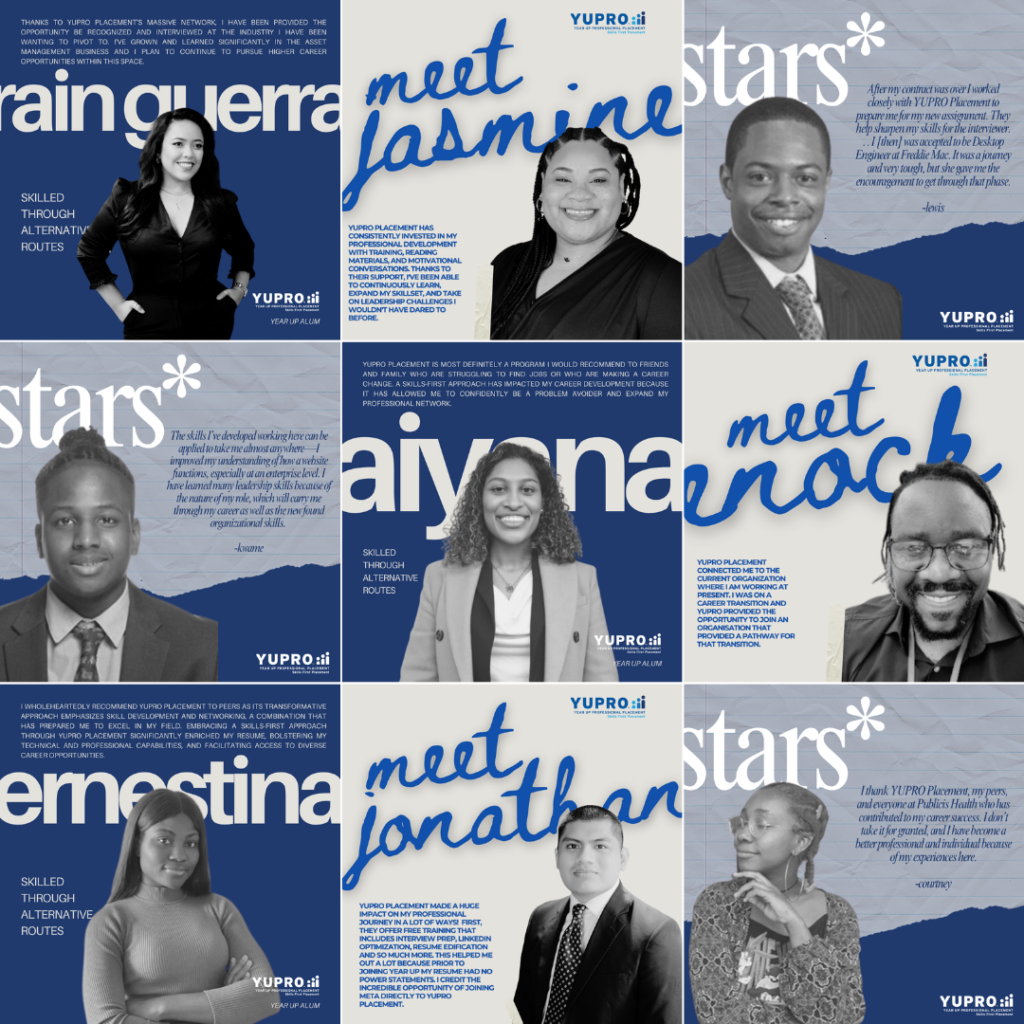All You Need to Know About Skills-Based Hiring
Skills-based hiring isn’t a trend. It’s the future of work.
If you’re a hiring manager, recruiter, or workforce development professional ready to shift from traditional proxies and old recruiting methods and instead fill your job demand based on verified skills, industry certifications, and workforce competencies, then this page is for you.
It brings together everything you need to understand, implement, and optimize a skills-first hiring strategy for workforce transformation—backed by real-world examples, how-to guides, free downloadable resources, and success stories from employers across industries.
What Is Skills-Based Hiring?
Skills-based Hiring is a talent acquisition strategy that evaluates candidates based on their skills, competencies, capabilities, and potential, no matter where these skills and traits come from—rather than focusing solely on 4-year degrees and years of experience in a specific job title. This is how companies are building more competitive and innovative teams, creating new pipelines of talent, and driving better business outcomes.
Why Skills-Based Hiring is on the Rise
- Accelerates time to productivity with talent skills aligned for the job or project
- Expands talent pools by removing unnecessary degree requirements
- Creates equitable hiring practices when all candidates are assessed on the same skills
- Future-proofs your talent acquisition and workforce strategy to remain nimble in a fast-paced tech landscape
Meet STARs: Talent who are Skilled Through Alternative Routes
One of the most powerful shifts in the hiring landscape is the rise of STARs—job seekers who are Skilled Through Alternative Routes rather than through a traditional four-year degree. STARs gain their skills through a variety of experiences including community college, military service, workforce training programs, apprenticeships, internships and on-the-job experience—and they represent a vast, untapped source of talent.
Today, the U.S. workforce over the age of 25 is comprised of over 70 million workers that do not hold 4-year degrees, yet many of our job descriptions unnecessarily require a 4-year degree for entry-level and mid-career roles. This is holding companies back and our economy back, when we don’t see talent for the skills they possess, no matter how those skills were acquired.
Just think of the power in your talent acquisition and workforce strategy when you could access this vast talent pool if you only just removed the 4-year degree requirement where it is not necessary.
At YUPRO Placement, we’ve been placing STARs for over 10 years. We don’t just believe in their potential—we see it realized every day.


Hire STARs in your Company
YUPRO Placement is a proud Opportunity@Work coalition member to advance career opportunities for STARs and drive the skills-first hiring movement. Together, we are committed to breaking down barriers and expanding access to high-quality jobs for STARs through innovative hiring solutions, employer education, and advocacy.
Opportunity@Work’s research and initiatives—like the #TearthePaperCeiling campaign—complement our mission by equipping employers with the data and tools needed to recognize the value of skills-first hiring. Through the placement of STARs in professional jobs in corporate America, we are shaping a labor market that values skills and potential over proxies.
Join us in celebrating STARs in the workforce. Meet Aaliyah Siddiqi who is featured in New York Times Square sharing her story, and representing the 70M+ STARs making a difference every day.
Skills-Based Hiring in Action: Industry-Specific Insights
We’ve partnered with companies across financial services, life sciences, pharma, insurance, and tech to help them shift from traditional hiring models to a skills-first approach. Explore how it plays out across sectors:
- Cloud, AI, SaaS, and Cybersecurity
Winning the Brutal Talent War in Cloud, Cybersecurity & AI
How to Implement Skills-Based Hiring in Cloud, AI, SaaS, and Cybersecurity
Earn-and-Learn Programs in Cloud, AI, SaaS, and Cybersecurity - Property Management
- YUPRO Placement Expands Skills-Based Hiring to Property Management Industry
Get Started Today with these Skills-Based Hiring Resources
- Skills-Based Hiring: Lessons Learned
A real-world look at what works (and what doesn’t).
- How to Write an Effective Skills-Based Job Posting
A tactical guide to rethinking job descriptions for impact.
- Skills-Based Job Posting Templates
Plug-and-play templates to fast-track your hiring strategy.
- Professional Apprenticeships as a Strategic Solution
How earn-and-learn models create real pipelines of skilled talent.


Need Help Making the Case Internally?
Many TA leaders and hiring managers support skills-based hiring in theory—but get stuck on how to build buy-in with other leaders in their organization. These resources can help you rally internal stakeholders and connect the dots to ROI:
- Your Future Depends on Skills: The New Rules of Headcount Planning
Learn how skills-based strategies tie directly to workforce planning and business success.
- Stop the Salary Wars for Early- and Mid-Career Talent
Skills-based hiring can lower cost per hire and reduce turnover—without compromising quality.
- How Talent Gaps Disrupt Tech Operations (and How Leaders Fix It)
A look at what’s really holding back innovation—and how a skills-first approach solves it.
Free Resources to Accelerate Your Shift
Ready to bring skills-based hiring to life in your organization? These tools are built for HR and talent acquisition leaders like you:
Take the Next Step
Whether you’re leading talent strategy for a Fortune 500 company or running a workforce development program, there’s a way to bring skills-based hiring to life—starting today.
